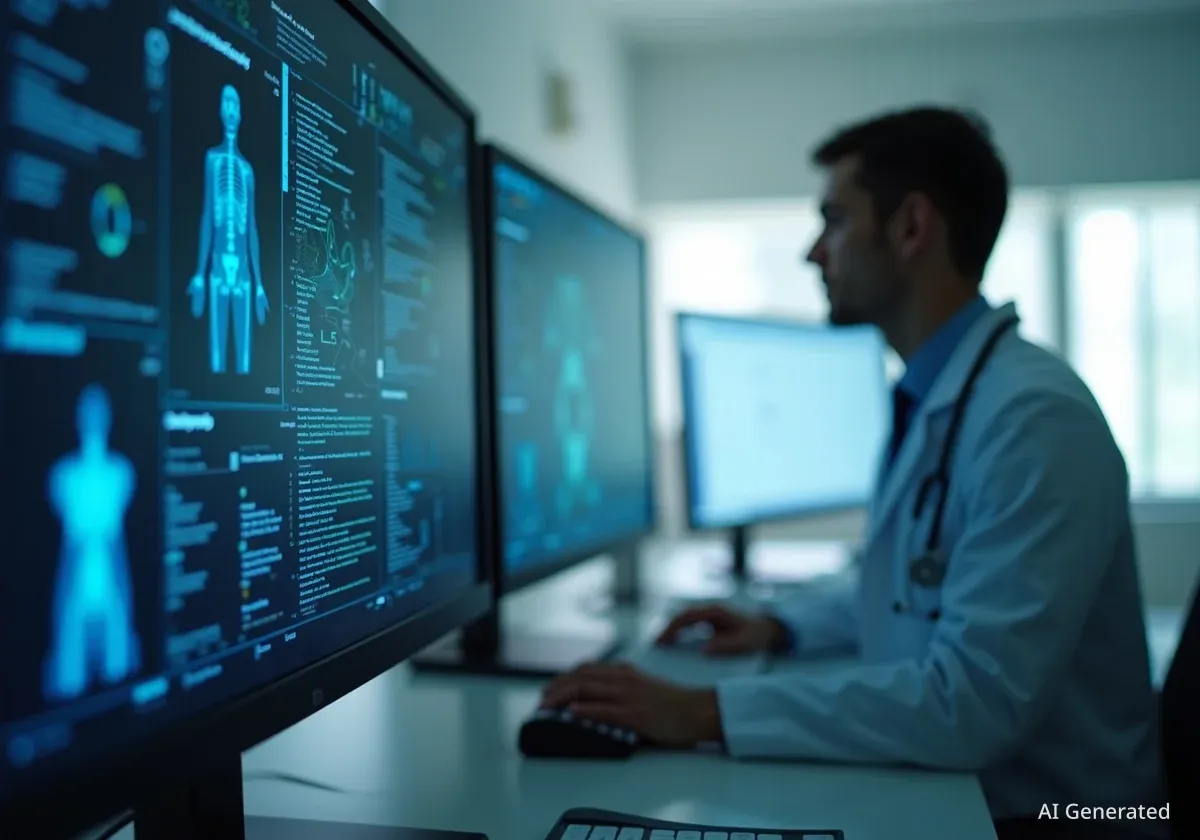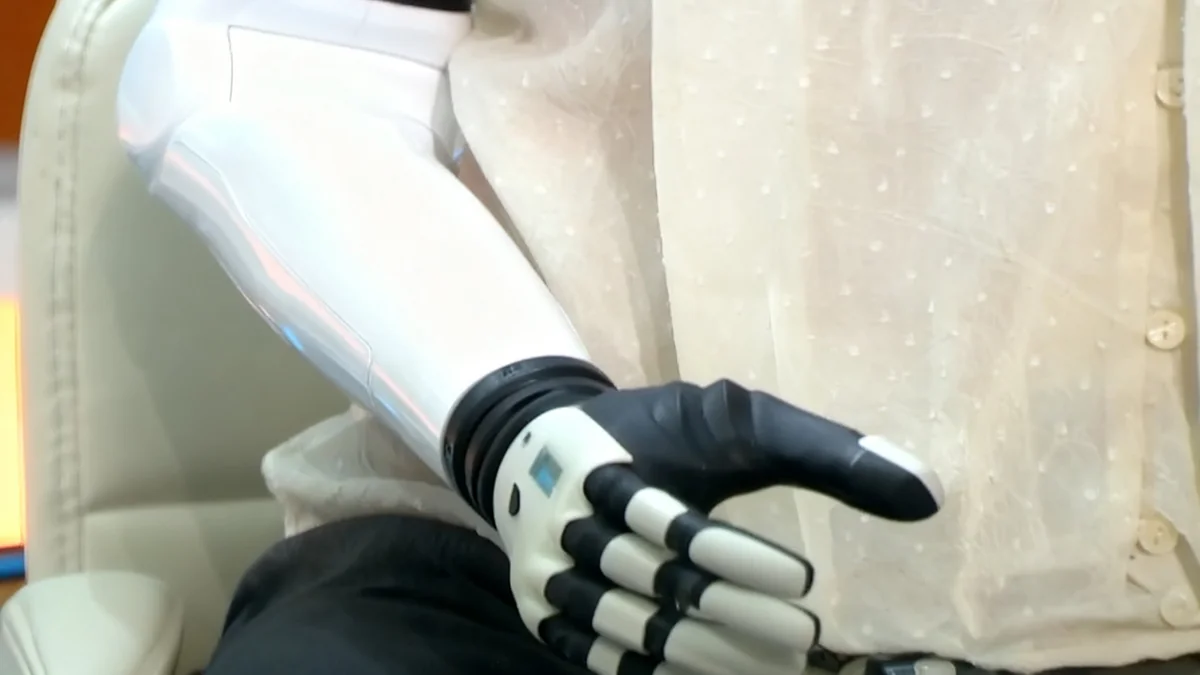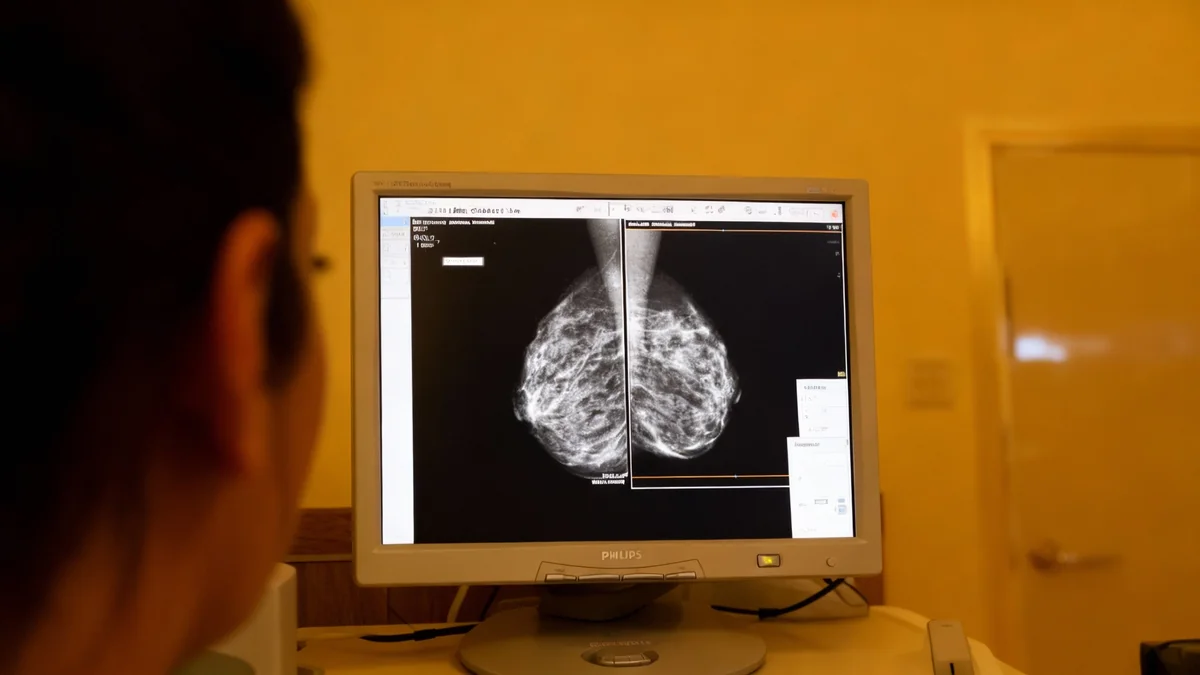Oncologists are increasingly turning to artificial intelligence (AI) to manage the immense volume of medical information and administrative duties associated with modern cancer care. Clinical decision support systems are being developed to act as sophisticated assistants, helping medical professionals navigate complex treatment options and improve patient outcomes without replacing their critical expertise.
Key Takeaways
- Oncologists face significant professional strain due to information overload and extensive administrative work.
- AI-powered clinical decision support systems function as "copilots" to assist, not replace, medical professionals.
- These tools help reduce cognitive load by verifying treatment plans and offering real-time, data-driven suggestions.
- Systems like MiBA TIPS integrate directly into electronic medical records (EMRs) to provide personalized patient information at the point of care, boosting efficiency.
The Growing Challenge of Information in Cancer Care
The field of oncology is expanding at an unprecedented rate. New research, treatment protocols, and genetic discoveries are published daily, creating a significant challenge for practicing oncologists who must stay current to provide the best possible care.
This constant influx of information, often described as a "tsunami of information," adds a substantial cognitive burden to an already demanding profession. Clinicians spend long hours outside of patient care simply trying to keep up with the latest medical literature.
A Rapidly Expanding Field
According to the National Library of Medicine, millions of new biomedical and life science articles are published annually. For a specialist in a field like oncology, staying abreast of every relevant development is a monumental task.
In addition to staying informed, oncologists manage heavy administrative loads. These tasks include detailed documentation in electronic medical records, processing complex treatment orders, and navigating insurance requirements. The combination of information management and administrative duties contributes to professional burnout and can detract from time spent on direct patient care.
AI as a Clinical 'Copilot'
To address these challenges, technology developers are creating AI-driven clinical decision support systems (CDSS). These tools are not designed to make decisions for the doctor but to function as an intelligent assistant or "copilot." The primary goal is to augment the oncologist's expertise, not supplant it.
These systems work by processing vast amounts of data in real-time. They can analyze a patient's specific medical history, genetic markers, and current condition against a massive database of clinical trials, research papers, and established treatment guidelines.
"The concept is to provide a layer of support that handles the data-intensive tasks, freeing up the oncologist to focus on the patient. It's about enhancing human intelligence, not replacing it."
By doing so, the AI copilot can help in several key areas:
- Reducing Cognitive Strain: The system can quickly synthesize information and present the most relevant data, saving the doctor hours of research.
- Verifying Complex Orders: AI can double-check complex chemotherapy regimens and other treatment orders for potential errors or drug interactions.
- Providing Timely Suggestions: Based on the latest patient data, the system can suggest relevant clinical trials or alternative therapies that the oncologist might consider.
Practical Integration into Clinical Workflows
For any new technology to be effective in a clinical setting, it must integrate seamlessly into existing workflows. A prime example of this approach is MiBA TIPS, a point-of-care educational model designed to work within the electronic medical record (EMR) systems that hospitals and clinics already use.
What is an Electronic Medical Record (EMR)?
An EMR is a digital version of a patient's paper chart. It contains the medical and treatment history of the patients in one practice. EMRs allow clinicians to track data over time, easily identify which patients are due for preventive screenings or checkups, check how their patients are doing on certain parameters, and monitor and improve overall quality of care within the practice.
Instead of requiring doctors to log into a separate platform, tools like MiBA TIPS operate within the EMR interface. When an oncologist opens a patient's file, the tool automatically consolidates and displays the most relevant, personalized information needed to make an informed decision.
This integration is crucial for adoption. It avoids adding another layer of complexity to the doctor's daily tasks. The system presents information in a clear, concise format, which enhances the precision of treatment planning and improves overall practice efficiency.
Boosting Efficiency in Community Oncology
The benefits of AI decision support are particularly significant in community oncology settings. Unlike large academic medical centers, community practices may have fewer resources and less access to sub-specialists for consultations.
In these environments, an AI copilot can be an invaluable resource. It provides community oncologists with access to the same level of cutting-edge information and data analysis as their counterparts at major research institutions. This helps to standardize the quality of care and ensures patients receive treatments based on the very latest evidence, regardless of where they are treated.
By automating routine data checks and information retrieval, these systems allow clinicians in busy community practices to see more patients and dedicate more time to the human aspects of medicine, such as communication and empathy. Ultimately, the goal is to create a more sustainable and effective healthcare environment for both doctors and patients.





